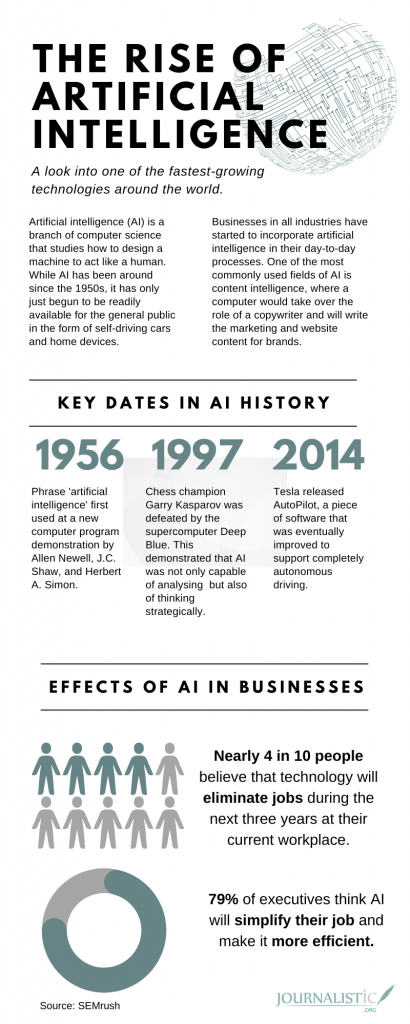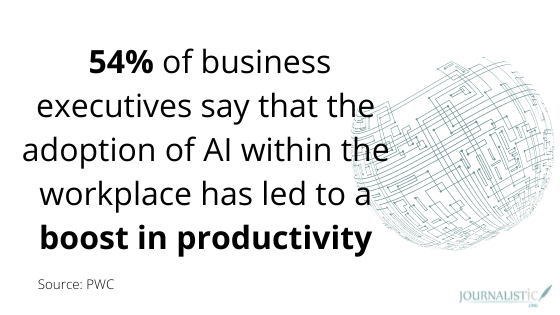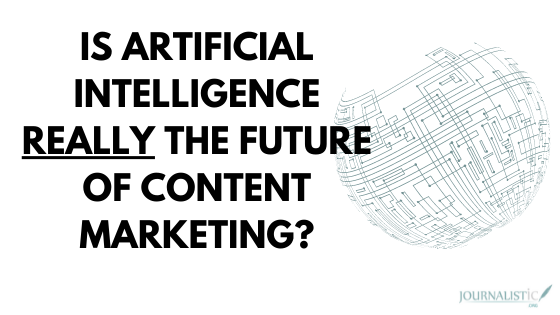Artificial intelligence seems to be the word on everyone’s lips as we go through technological advances that promise to save us both money and time. AI in content and marketing as a whole has been used for years to learn more about target audiences as well as what works and what doesn’t, but how does it fit into content marketing?
What is artificial intelligence?
Artificial intelligence (AI) is a subfield of computer science that looks at how to programme a machine to behave like a person. Although AI has been present since the 1950s, it has only lately begun to be employed extensively in a wide range of applications, from medical diagnosis to home appliances and self-driving cars.
Artificial intelligence has started to be used in content marketing to generate large amounts of pieces of writing in a relatively short amount of time.

The difference between artificial intelligence and content intelligence
The main difference between artificial intelligence and content intelligence is simply the scope in which it can be used.
AI is a term the encompasses the whole movement of using computer systems to carry out tasks that would normally require human interaction. Content intelligence is a branch of AI and is solely concerned with the creation and communication of ideas.
When content intelligence could help
Bulk copywriting can be a difficult task when you need to write multiple product descriptions or shorts bursts of content require a lot of work and the repetitive nature will be sure to drain your energy levels
With content intelligence and AI, it is possible to delegate these tasks to a computer and instead focus your time on more important tasks which will work towards increasing your productivity in the long run.

Artificial intelligence writing tools can be put to a wide range of varied uses, including:
-
Writing blog entries based on keywords or specific topics
-
Copywriting for digital agencies who need to produce a large amount of short-form content
-
Offering support to content creators in times of writer's block or a lack of time
Limitations of using content intelligence
Inaccuracy
The information provided here isn't entirely correct. AI writing helpers do not comprehend context well enough yet, they are not always correct in what they write. This means that each piece of content will need to be manually fact-checked and so overrides the autonomous benefit of artificial intelligence.
It also won't always be able to come up with new ideas for articles either. Most AI tools can only provide new content if they have access to sufficient data on each subject.
Tone
Where most AI content falls down is the tone. Some people claim that artificial intelligence (AI) is superior to content writers since the tasks are quickly completed and largely accurate. While some believe that this style of writing is appropriate for all assignments, others disagree. The computer-generated content can include language and tone that are inappropriate for the project.
These sections were written by a free AI tool:
Humorous –
AI writers are a new type of content generator that is capable of providing a range of copywriting services. They can be used in a variety of ways, from generating content for websites to providing the perfect title for an article.
The best thing about AI writers is that they help create content without any direction or input from the user. They know how to balance keywords and phrases to maximize search engine optimization and conversion rates.
Critical –
Copywriting is an important part of digital marketing, and AI writers can help with this process. AI writing can generate content ideas at scale to help with writer’s block and create content that resonates better than the average human writer.
AI writers can also help with SEO by generating keywords and phrases that people are more likely to search for.
Worried –
AI writers are a new type of software that can generate content on a long-tail keyword basis. They get used for SEO purposes and to produce content at scale, but it is important to note that they are not a replacement for human copywriters.
These AI writers get better over time as they learn from their mistakes, which reduces the need for human input, but there is still a need for humans to review them before they go live.
So whilst the tone can be changed (in theory) according to the needs of the project, it still doesn’t come across in the way specified. This could be especially problematic if you’re an agency writing content for multiple clients with different brand tones of voice.
Where specialised content marketers are needed
For now, artificial intelligence within content works for creating short-form pieces of writing. Think general product descriptions, SEO experiments or location pages on a company site.
But where it seems to fall down is long-form content.
A specialised content marketer will be able to research the topic themselves, create a layout that makes sense to the reader and pepper keywords throughout to make the thousand words or so useful. Where content writers are trained to create linear pieces of work, most content intelligence tools will veer off which results in a haphazard collection of topics.
Conclusion
Whilst artificial intelligence is incredibly helpful and a part of most long-term business plans, copywriters can breathe a sigh of relief. AI won’t be replacing content specialists anytime soon.
AI tools are not a replacement for human copywriters. Instead, artificial intelligence could be used within content marketing plans to take care of the small stuff and eliminate writer's block. That is, until content intelligence tools that are readily available have mastered adopting tones of voice…


